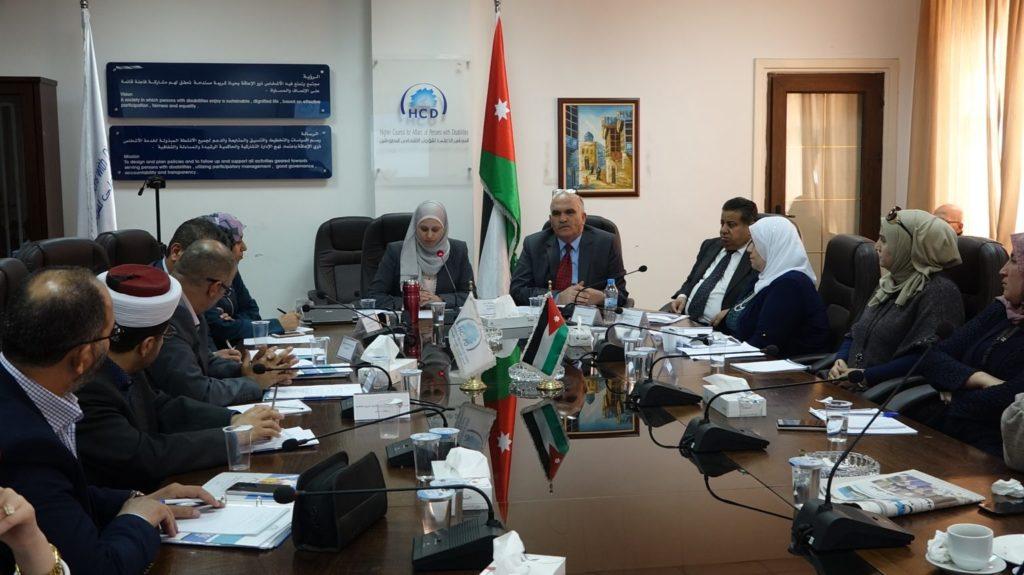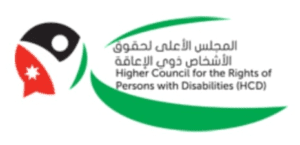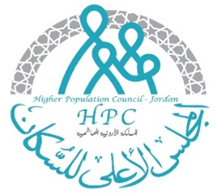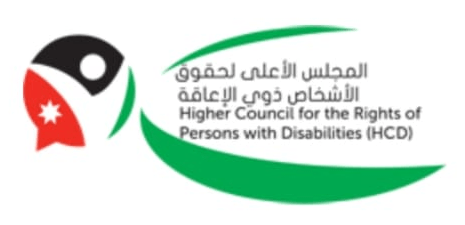Current Situation of Reproductive Health Programs for Persons with Disabilities
The Share-Net Jordan team met with the Assistant Secretary-General for Technical Affairs at the Higher Council for the Rights of Persons with Disabilities (HCRPD), Ms. Ghadeer Al Haris, to talk about a study that she was involved in conducting upon receiving a Share-Net International small grant. Ghadeer was a key member of the team that applied for a grant in 2016 to carry out a study on the current situation of reproductive health programs for persons with disabilities. The study was published in Arabic and English, posted on Share-Net Jordan and Share-Net Internationals website and disseminated to national concerned stakeholders.
About HCRPD
The Higher Council for the Affairs of Disabled Persons was established pursuant to the Law on the Rights of Disabled Persons no.31 of 2007 as a public institution headed by His Royal Highness Prince Ra’ad Bin Zaid. Subsequently, under the leadership of Prince Mired Bin Ra’ad, the law was replaced by the Law on the Rights of Persons with Disabilities no.20 of 2017 and the name of the Council was amended to the Higher Council for the Rights of Persons with Disabilities. HCRPD serves as the institutional and legal umbrella for persons with disabilities in Jordan, and aims to have a society where persons with disabilities enjoy a decent and sustainable life and grants them effective and equal participation.

About the small grant
The study aimed to identify reproductive health programs in Jordan that fulfill the needs of persons with disabilities, raise awareness and combat stereotypes, judgments and harmful practices against persons with disabilities, including those based on gender and age in all aspects of life. The study also aimed to measure the level of awareness among persons with disabilities and their families about their right to access reproductive health programs that meet their needs on an equal basis with others in Jordan.
Ms. Ghadeer, who was the director of the policies and planning directorate at HCRPD at the time of receiving the small grant, said that the shortage of reproductive health services for persons with disabilities was the motivation behind applying for the small grant. However, back then the team did not have a full understanding of the size of the problem, or whether the offered services were appropriate and inclusive for persons with disabilities of all age groups. “We also did not know to what extent the staff at maternal and child health centers were equipped and trained to deal with persons with a disability, or whether awareness programs, including posters, publications and awareness videos, were mindful of the necessary reasonable accommodations for persons with disabilities”, Ghadeer added.
Upon identifying the outcomes of the study, Ghadeer explained that Share-Net Jordan organized a roundtable to discuss the key findings. A team of experts was also formed to develop a position paper, in partnership with Share-Net Jordan, on the rights of persons with disabilities to reproductive health services with the aim of making reproductive health equally accessible for persons with disabilities. In addition, awareness-raising publications were made available in accessible formats, such as Braille, sign language and large print, as well as simplified language for persons with intellectual disabilities. The position paper was disseminated to all concerned agencies to inform their plans and programs.
When asked about whether the produced knowledge has caused a change in SRH programs, policy and practice and what the changes were, Ghadeer answered that health professionals have started receiving training in sign language and effective communication with persons with disabilities. She also explained that the Law on the Rights of Persons with Disabilities no.20 of 2017, which was being developed when the first draft of the study was issued, incorporated clauses on the rights of persons with disabilities to reproductive health services, reasonable accommodation and accessibility in all hospitals, health centers and Maternal and child health centers.
Ghadeer mentioned that the Ministry of Health committed to implementing training programs targeting health professionals at maternal and child health centers and primary healthcare centers on the rights of persons with disabilities and effective communication with persons with disabilities, as well as to design attractive manuals on accessibility standards for persons with disabilities in hospitals.
Commenting on how the SNI small grant allowed her to do other work in addition to her regular duties, Ghadeer said that reproductive health is one of the new areas being addressed from the perspective of the rights of persons with disabilities, as it focuses on making SRH services and sexual health awareness accessible for persons with disabilities, their families and the professionals working with them. To formulate the draft of the research project, the team had to conduct desk research and look up previous research and literature, despite their scarcity. The team also contacted reproductive health experts to inquire about the range of reproductive health services offered in order to develop the scope of work for the project. “It was an exciting and insightful experience for the team, enabling them to learn so much about an area that is perceived by some as sensitive and surrounded by numerous social limitations, especially with respect to sexual health education and hysterectomy for girls with intellectual disability”, Ghadeer explained.
Ghadeer indicated that working with small grants is exciting as her team’s project served as a stepping stone for larger-scale projects that will require more funding and will build on the outcomes, facts and evidence derived from this project. Ghadeer noted that the implementation of the project went smoothly and paved the way for partnering with other entities to carry out the study according to specific timeframes while conducting regular check-ins and reviews, taking into account the large size of the targeted sector.
Ghadeer pointed out that the application process is clear and not complicated and that Share-Net Jordan helped facilitate the application steps and stages towards receiving the grant.
Furthermore, Ghadeer elaborated that the discussion session on reproductive health services organized by Share-Net Jordan, offered the opportunity to meet with many experts in the field, who offered impactful recommendations that led to drafting a position paper on the rights of persons with disabilities to reproductive health services. Also during the course of the research project, the team met with many individual experts and specialists from concerned organizations at brainstorming sessions to share expertise and stress the need to incorporate the ideas in the position paper in the national strategy for sexual and reproductive health, which the Higher Population Council (HPC) is currently formulating.
Ghadeer Al Haris encourages other Share-Net members to apply for the small grants award and explains that receiving the grant allows building partnerships with numerous other recipients of the grant. It also facilitates membership in Share-Net Jordan and Share-Net International and gaining experience from communicating and sharing information towards building an accessible database on the Share-Net platform.
With special thanks to Ghadeer Al Haris.
Prepared by Ali Almeteq and Ahmed Grezat.



